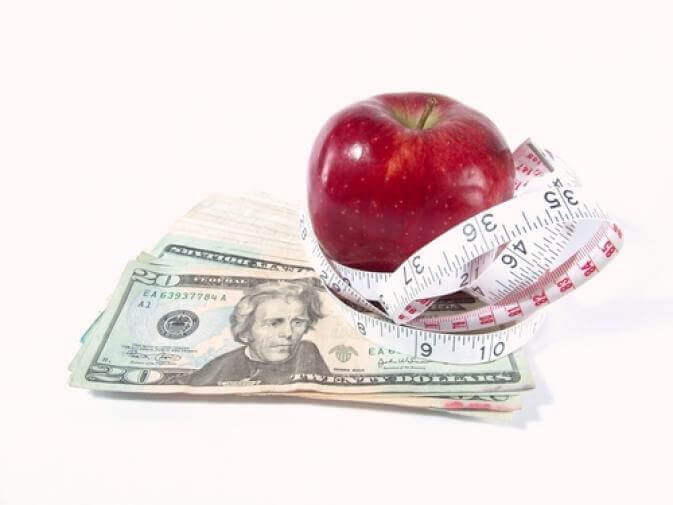How Finances Affect Your Fitness
Get-Fit Guy has 5 tips to reduce stress, improve your fitness levels, and maximize your financial success from successful entrepreneur Garrett Gunderson.
Ben Greenfield
Listen
How Finances Affect Your Fitness

If you follow to my fellow Quick and Dirty Tips expert, Money Girl, then you’re learning about how to maximize your financial success.
But have you ever thought about how money, or lack thereof, can affect your exercising, diet, or health goals? In this episode, you’ll learn how finances affect your fitness, and get 5 quick and dirty tips for maximizing your financial success.
Money On Your Mind
When you’re short on cash, unable to enjoy the finer things in life, or just worried about getting by day-to-day, your body can respond by churning out stress hormones (such as cortisol). Even though not being able to pay your cable bill isn’t necessarily a life-or-death scenario, your body is hardwired to go into “running from a lion” survival mode when you experience such a stress – and as a result, your blood pressure goes up, your heart rate elevates, and your blood sugar increases. When these effects are allowed to stay in your body on a day-to-day basis (as might happen if you’re constantly worrying about money), then they can eventually spiral into more serious issues, such as blood vessel damage from chronic high blood pressure, cardiovascular strain from a constantly elevated heart rate, and insulin insensitivity or risk of diabetes from chronically elevated blood sugar.

In addition, if your habits are leaving you strapped for cash, it’s unlikely that you’ll be well equipped to pay a monthly gym membership, build a home gym, or even change your running shoes or exercise gear as frequently as you may need to. My article How to Get Fit on a Budget is a great place to start reversing the adverse effects of your financial worries.
I recently asked Garrett Gunderson, a highly successful entrepreneur who started his first company at the age of 15 and became a millionaire by the age of 26, for his top tips for fighting financial stress and maximizing financial success.
How to Fight Financial Stress
Here are Garret’s top 5 Quick and Dirty Tips for improving your financial life:
#1: Do a Power Hour
Garrett recommends starting every day with exercise, education, and enlightenment. This means you can enlighten yourself by doing a workout or a morning yoga routine while listening to an educational podcast. When choosing what you want to learn more about, try to focus on the things that you really care about and that make you excited, rather than worrying about things that bring you little passion in life. So if real estate or stock market investing don’t make you excited, there’s no reason to focus on those financial paths.
#2: Be Grateful
Research has shown that the simple feeling of gratitude can actually induce a series of biochemical reactions within your body that reduces stress and amplifies relaxing brain waves. To take advantage of this on a practical level, Garrett recommends that you make a gratitude list. Rather than constantly thinking about scarcity and what you don’t have, create a list of all the things that you can be grateful for, and constantly add to and review your list. Remember: when you engage in activities like this that reduce stress, you increase the likelihood that you’ll have the energy to exercise.
#3: Create Value
Garrett defines creating value as simply solving problems and serving others in a capacity where they exchange dollars for your solutions. Think about your talents, passions, and values in life, and then figure out how you can help others by using those skills. Garrett calls this “following your soul purpose.” In practical terms, what this means is if you play a musical instrument, for example, you can provide online or face-to-face music instruction. If you have a passion for wine, you can start a wine club. If you enjoy fitness; you can start a workout blog. There is a myriad of ways that you can take your passion and create value for others with it. And dollars follow value!
#4: Optimize Your Cash Flow
Here’s where Garrett gets down to specifics. He recommends you create a cash flow list in which you write down everything that you’re spending money on each month. Split your expenses into three categories: destructive expenses, constructive expenses, and productive expenses. A destructive expense might be buying a 6-pack of beer every few days, purchasing lots of expensive processed foods, or paying for cable TV that you rarely use. A constructive expense is a need that enables you to live life advantageously, and might include paying for your car loan, home mortgage, or health insurance. Finally, a productive expense allows you to create value, and might include enhancing your health with a gym membership or investing in your business. Try to eliminate destructive expenses, and instead focus on your constructive and productive expenses.
#5: Expand Your Means
Rather than focusing on living within your means and living a life of scarcity by constantly reducing your expenses, especially those constructive and productive ones, Garrett recommends that you instead focus on expanding your means by increasing your capacity to produce and deliver value. If you’re trying to make money with an online business, this may mean that you invest in a faster computer. Or if you want to help others enhance their health, invest in a personal training certification or community classes in nutrition or exercise.
In a nutshell, being short on cash can create stress. But rather than focusing on what you don’t have, focus on what you’re grateful for, create value, and direct any available dollars towards productivity!
Visit FreedomFastTrack.com to get a free download of an audio series and e-book that helps you to understand more about how to build a personal financial plan that reduces stress in your life and enhances your productivity.
If you have more questions about how finances affect your fitness, then share them in Comments or on the Get-Fit Guy Facebook page!
Fitness, healthcare, and expenses image from Shutterstock.

